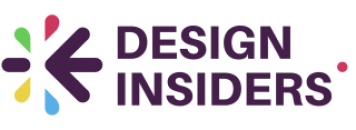
Understanding the role of a ux consultant
What Makes a UX Consultant Essential in Today’s Design Landscape
In the fast-evolving world of digital products, the role of a UX consultant has become increasingly vital. Businesses and product teams face constant pressure to deliver user friendly experiences that align with both user needs and business goals. A UX consultant steps in as a bridge between users, designers, and stakeholders, ensuring that every design decision is grounded in real user insights and best practices.
Unlike a traditional designer or even a senior designer, a UX consultant brings a broader perspective. They are not only focused on the visual aspects of experience design but also on understanding user pain points, usability, and the overall effectiveness of a product. Their work often involves collaborating with product managers, business leaders, and development teams to create user centered solutions that drive measurable results.
- Experience consultant: Brings a wealth of experience from various industries, helping clients avoid common pitfalls and adopt proven strategies.
- Design consultant: Offers objective insights, challenging assumptions and guiding teams toward more effective design solutions.
- Usability testing and data analysis: Uses data and user feedback to validate design decisions and refine products for better outcomes.
Consultants are often brought into projects to help teams see beyond their own biases and focus on what truly matters to users. Their skills go beyond design; they facilitate workshops, conduct user research, and translate complex findings into actionable recommendations. This holistic approach ensures that digital products are not only visually appealing but also intuitive and aligned with user agreement and privacy policy standards.
For those interested in how design can balance simplicity and complexity to create effective solutions, exploring finding balance in creative solutions offers valuable insights into the evolving demands placed on UX consultants today.
As the demand for user experience expertise grows, so does the need for consultants who can help businesses navigate the challenges of modern design. Their impact is felt across every stage of a project, from initial research to final usability testing, making them indispensable partners in creating successful digital products.
Key skills every ux consultant brings to a project
Essential expertise that shapes user experience
When a business brings a UX consultant onto a project, they are looking for more than just another designer. The consultant’s role is to bridge the gap between user needs and business goals, ensuring that every design decision is rooted in real-world insights. This requires a blend of technical, analytical, and interpersonal skills that go beyond traditional design jobs.
- User-centered mindset: A UX consultant always puts the user at the center of the process. This means understanding user pain points, motivations, and behaviors through data and usability testing. Their approach helps create digital products that are not only visually appealing but also genuinely user friendly.
- Research and analysis: Consultants are skilled at gathering and interpreting data, whether through interviews, surveys, or usability testing. This ability to extract actionable insights is crucial for identifying what users need and where a product can improve. For a deeper dive into early-stage design thinking, check out the role of thumbnail sketches in the design process.
- Communication and collaboration: UX consultants must work closely with product managers, senior designers, and other team members. They translate complex findings into clear recommendations, helping clients and stakeholders understand the value of user experience design.
- Problem-solving and adaptability: Every project is different. Consultants draw on their experience to adapt best practices to new challenges, whether it’s aligning with a client’s privacy policy or navigating a tricky user agreement. Their flexibility helps teams respond to shifting business needs and user expectations.
- Strategic thinking: Beyond individual features, UX consultants look at the bigger picture. They help align design solutions with business goals, ensuring that the final product supports both user satisfaction and organizational success.
These skills are especially important in complex projects, where multiple stakeholders and competing priorities can make decision-making challenging. A senior designer or experience consultant brings authority and clarity, guiding teams toward user-centered, data-driven outcomes. Their work not only improves usability but also delivers measurable value to clients and end users alike.
How a ux consultant approaches user research
Uncovering User Needs Through Research
When a UX consultant joins a project, one of their first priorities is to deeply understand the user. This goes beyond simply asking what users want; it’s about uncovering their pain points, motivations, and behaviors. By applying proven experience design methods, consultants help teams and clients move from assumptions to data-driven insights. This process is essential for creating digital products that are not only user friendly but also aligned with business goals.
- Usability testing: A senior designer or consultant will often conduct usability testing sessions to observe how real users interact with a product. These sessions reveal friction points and opportunities for improvement, ensuring the final design solutions are practical and effective.
- Surveys and interviews: Gathering qualitative and quantitative data helps consultants understand user agreement on features and overall satisfaction. This information guides design decisions and supports a user centered approach.
- Competitor analysis: By examining similar products, consultants can identify best practices and gaps in the market, helping businesses stay competitive.
Consultants also collaborate closely with product managers, designers, and other team members to ensure that research findings are translated into actionable insights. Their skills in synthesizing data and communicating results are vital for aligning the team around user needs and business objectives.
For those interested in exploring alternative tools that support user research and experience design, you might find this guide to alternatives to Adobe InDesign for designers useful. The right tools can make a significant difference in how efficiently consultants and teams work together to deliver user centered solutions.
Ultimately, the value of a UX consultant lies in their ability to bridge the gap between users and business, ensuring that every design decision is informed by real-world insights and usability data. This approach not only improves the user experience but also drives measurable results for the business and its digital products.
Collaborating with teams and stakeholders
Building Trust and Communication Across Teams
Effective collaboration is at the heart of successful experience design. A UX consultant bridges the gap between product managers, designers, developers, and business stakeholders. Their role is not just about advocating for the user, but also aligning user experience goals with business objectives. This means translating user insights and usability data into actionable design solutions that support both user needs and business goals.
Facilitating Workshops and User Agreement
Consultants often organize workshops to help teams understand user pain points and prioritize features. These sessions encourage open dialogue, allowing everyone to contribute ideas and voice concerns. By fostering a user-centered mindset, the consultant ensures that design decisions are informed by real user data and best practices, rather than assumptions or personal preferences.
- Senior designers and consultants use their experience to mediate between conflicting priorities, ensuring the final product is both user friendly and aligned with business strategy.
- They help teams interpret usability testing results, turning feedback into concrete improvements for digital products.
- Consultants guide teams through privacy policy and cookie policy considerations, making sure user data is handled responsibly.
Supporting Product Managers and Stakeholders
UX consultants work closely with product managers to clarify project goals and define success metrics. Their skills in understanding user behavior and analyzing data help teams make informed decisions. By sharing insights and advocating for the user, they help create a shared vision that unites everyone involved in the project.
In complex jobs, the consultant’s ability to communicate findings and recommendations clearly is essential. This ensures that clients and internal teams are on the same page, reducing misunderstandings and streamlining the path to a successful, user-centered product.
Challenges faced by ux consultants in complex projects
Complexity in Balancing User Needs and Business Goals
One of the main challenges for a UX consultant is finding the right balance between user needs and business goals. While the consultant’s job is to advocate for a user-centered approach, there are often competing priorities from product managers, stakeholders, and business leaders. This can create tension when making design decisions, especially if usability insights suggest changes that may impact timelines or budgets. The ability to communicate the value of user experience and align it with business objectives is a critical skill for any senior designer or consultant.
Navigating Stakeholder Expectations
UX consultants frequently work with diverse teams, including designers, developers, and clients. Each group may have different expectations and levels of understanding about experience design. Bridging these gaps requires strong communication skills and the ability to translate complex usability data into actionable recommendations. Consultants must also manage user agreements and privacy policy considerations, ensuring that digital products remain user friendly while complying with regulations.
Dealing with Ambiguity and Limited Data
In many projects, consultants are brought in when there is already a lack of clarity about user pain points or the overall product direction. This ambiguity can make it difficult to define clear design solutions. Sometimes, there is limited access to user data or usability testing results, making it challenging to provide evidence-based recommendations. Senior consultants rely on their experience and best practices to fill these gaps, but they must also advocate for more research and user insights whenever possible.
Managing Change and Resistance
Introducing new design processes or usability improvements can meet resistance from teams who are used to established workflows. A UX consultant’s role is to help teams see the value in user-centered design and guide them through change. This often involves facilitating workshops, sharing case studies, and demonstrating how improved user experience can lead to better business outcomes. Building trust and fostering collaboration are essential skills for overcoming resistance and ensuring project success.
- Balancing user and business needs
- Translating data into actionable insights
- Managing stakeholder expectations
- Working with limited data
- Driving organizational change
These challenges highlight why experience consultants are in demand for complex jobs. Their expertise helps teams deliver digital products that are not only functional but also user friendly and aligned with business goals. The ability to navigate these obstacles is what sets a senior design consultant apart in the field of experience design.
Measuring the impact of a ux consultant’s work
Evaluating Success Through Tangible Outcomes
Measuring the impact of a UX consultant’s work is essential for both clients and teams. Unlike traditional design jobs, the value a consultant brings is often seen in how user experience improvements align with business goals and user needs. The process goes beyond just delivering a visually appealing product; it’s about creating user centered, data-driven solutions that solve real pain points.
- Usability Testing Results: One of the most direct ways to assess impact is through usability testing. By observing how users interact with digital products before and after a consultant’s involvement, teams can see improvements in task completion rates, reduced errors, and overall satisfaction.
- Business Metrics: Metrics such as conversion rates, retention, and user engagement provide clear data on how design decisions affect business outcomes. A senior designer or experience consultant will often set benchmarks at the start of a project to track progress.
- Stakeholder and Team Feedback: Regular feedback from product managers, designers, and clients helps gauge whether the consultant’s insights and skills are translating into better collaboration and more effective design solutions.
- User Agreement and Satisfaction: Surveys and interviews can reveal how well the new experience meets user expectations. This qualitative data complements quantitative usability metrics, offering a holistic view of success.
Best Practices for Ongoing Measurement
Experienced consultants know that measuring impact is not a one-time task. They help teams set up ongoing processes for collecting and analyzing data, ensuring that user experience remains aligned with evolving business goals. This includes establishing clear privacy and cookie policies to build trust, and maintaining open communication channels for continuous feedback.
Ultimately, the most effective UX consultants empower teams to make informed design decisions based on real user insights. Their work leads to more user friendly, efficient, and successful digital products—outcomes that benefit both users and businesses in the long run.














